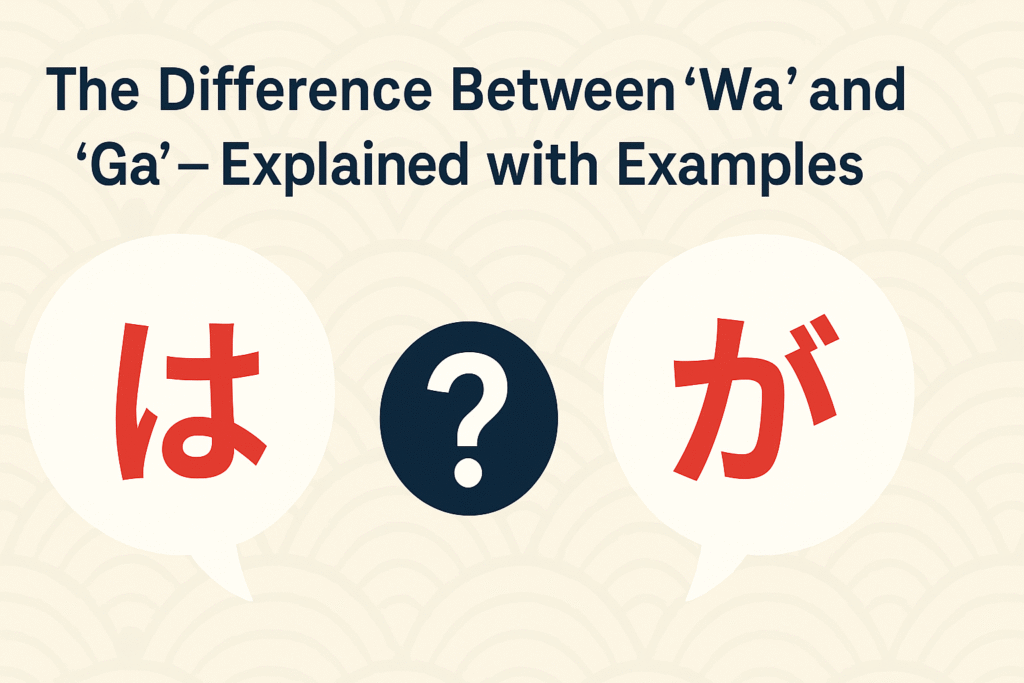If you’ve started learning Japanese, you’ve probably encountered the particles “wa” (は) and “ga” (が). These tiny words play big roles in Japanese sentences, and they often confuse beginners. In this article, we’ll clearly explain the difference between “wa” and “ga” using simple examples.
What Are Particles?
In Japanese, particles are small words that come after nouns, pronouns, or phrases to show the role of those words in the sentence.
Think of them like “signposts” that tell us what the subject is, what the object is, or what the focus is.
“Wa” (は) — The Topic Marker
“Wa” is used to mark the topic of the sentence. It tells the listener what the sentence is about.
Example 1:
- わたしはがくせいです。
- Watashi wa gakusei desu.
- “As for me, I am a student.”
In this sentence, “watashi wa” means “as for me”. The sentence is about “me.”
Key Point:
Use “wa” when you want to introduce or talk about a topic that both the speaker and listener know.
“Ga” (が) — The Subject Marker
“Ga” is used to mark the subject of a sentence. It points to the person or thing doing the action or being described, especially when introducing something new or when emphasizing who or what does something.
Example 2:
- だれがせんせいですか?
- Dare ga sensei desu ka?
- “Who is the teacher?”
The question is about who the teacher is. “Ga” emphasizes the subject.
Example 3:
- たろうがせんせいです。
- Tarou ga sensei desu.
- “Tarou is the one who is the teacher.”
Here, “ga” highlights that Tarou (not someone else) is the teacher.
Key Point:
Use “ga” when introducing new information or focusing on who/what is involved.
“Wa” vs “Ga” – Side-by-Side
| Sentence | Translation | Usage |
|---|---|---|
| はるははれです。 (Haru wa hare desu.) | “As for spring, it is sunny.” | “Wa” introduces the topic (spring) |
| そらがみえます。 (Sora ga miemasu.) | “The sky is visible.” | “Ga” emphasizes the subject (sky) |
Bonus: Can You Use Both?
Yes! You might see both “wa” and “ga” in the same sentence, especially when contrasting or clarifying subjects.
Example:
- わたしはたべませんが、かれはたべます。
- Watashi wa tabemasen ga, kare wa tabemasu.
- “I don’t eat, but he does.”
Here, both particles help show contrast and focus.
Final Thoughts
- Use “wa” to introduce or talk about general topics.
- Use “ga” to emphasize or introduce new subjects.
- Practice with real sentences to get the feel of each.
It takes time to master the difference, but with exposure and practice, you’ll become more comfortable using both.
Keep learning – you got this!

